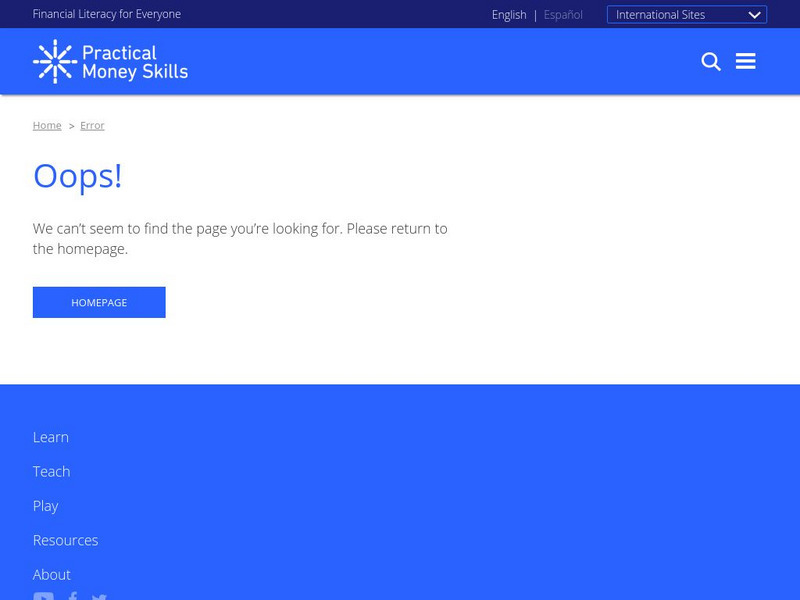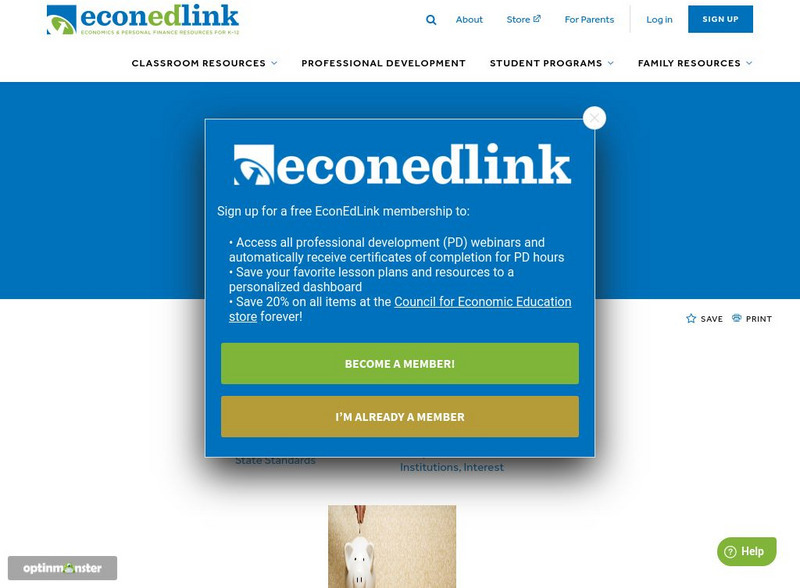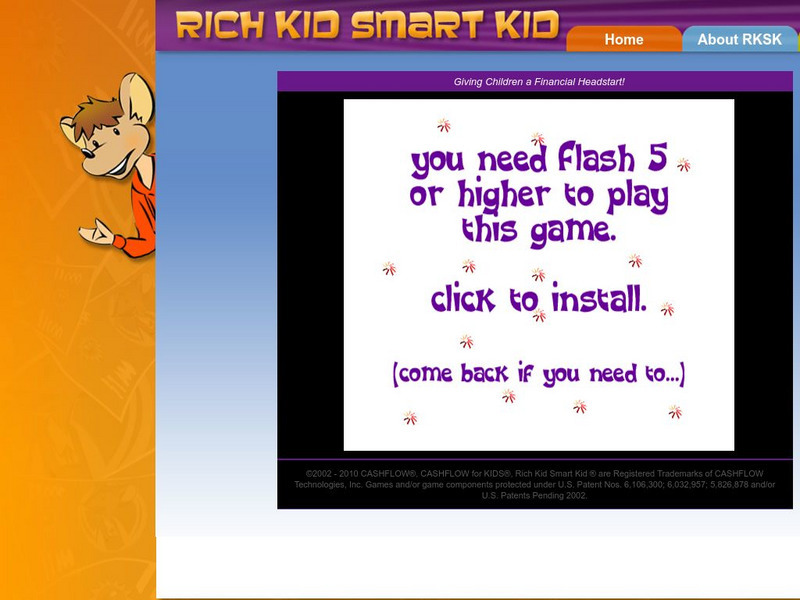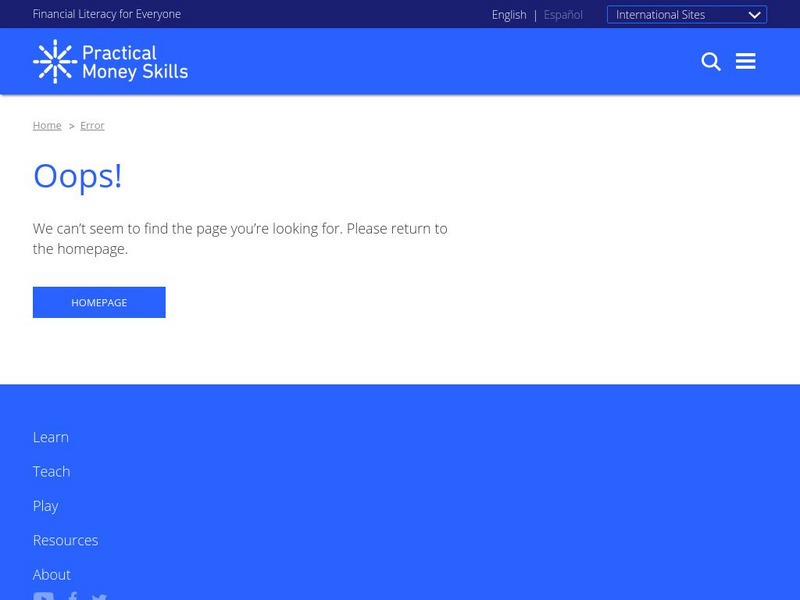Khan Academy
Khan Academy: Easy Tips to Save Money Every Day
Saving starts with just a few simple changes to your spending. Learn how to save money on your everyday expenses, like groceries, transportation and entertainment. [3:50]
Consumer Financial Protection Bureau
Consumer Financial Protection Bureau: Evaluating Savings Scenarios
By analyzing real-world scenarios, students practice making informed decisions about savings tools to meet financial situations and needs. Includes teaching guide, a handout on options for saving money, and a student worksheet that can...
Council for Economic Education
Econ Ed Link: A Penny Saved Is a Penny at 4.7% Earned
This is a lesson from EconEdLink where students learn about saving money. Includes activities and materials.
Illustrative Mathematics
Illustrative Mathematics: 2.nbt Saving Money 1
In this lesson plan students use strategies based on place value to add and subtract within 100.
Consumer Financial Protection Bureau
Consumer Financial Protection Bureau: Saving Each Payday
Young scholars use a real-world simulation to learn how saving a little money each payday can be a successful strategy for saving. Includes teaching guide and student worksheet that can be filled in on a computer.
Consumer Financial Protection Bureau
Consumer Financial Protection Bureau: Exploring Savings Habits
Learners learn about the benefits of forming their own savings habits and explore what it looks like to save a percentage of income.
Unite for Literacy
Unite for Literacy: Community: Fatima's Savings Jar
Learn how one child was able to save her money up for something special. Includes audio narration in 6 additional languages with text in English.
Practical Money Skills
Practical Money Skills: Save a Million
Practical skills in finance and economics teach students about saving, budgeting, and retirement. Students can calculate what it takes to become a millionaire based on their age and income.
Federal Reserve Bank
Federal Reserve Bank of St. Louis: Less Than Zero [Pdf]
This lesson accompanies a story by Stuart J. Murphy called Less Than Zero and teaches learners about how to manage their money by saving it and setting goals for themselves.
Practical Money Skills
Practical Money Skills at Home: Saving and Investing
This collection of activities offers practical strategies to help parents teach teens the basics of saving and investing. Using the suggested activities, parents can share facts about direct investing, mutual funds, and investment clubs...
Consumer Financial Protection Bureau
Consumer Financial Protection Bureau: Storing My Savings
Students read descriptions of common places to store their money and weigh the benefits and risks of each to decide which one(s) fit their financial goals.
Council for Economic Education
Econ Ed Link: Big Banks, Piggy Banks
Use this informative economics lesson plan. Find out how to save your money. "You will read about safe places for keeping money; you also will learn about places where money can earn money."
Other
Rich Kid Smart Kid: Ima's Dream
Animated learning games for students in all grades K-12, teaches them about basic finance, how to save, give and invest.
Practical Money Skills
Practical Money Skills at Home: Allowance and Work
This collection of activities focuses on strategies for teaching teens how to balance allowance, chores, school, and work. Also provided are practical tips for parents regarding signs to look for that may indicated earned money is being...
Other
Wells Fargo: Hands on Banking: Elementary School Course
Learning game for younger students in a lesson in economics in which students learn about banking, saving, budgeting, and money.
PBS
Pbs Learning Media: More Bidding Challenges
In this video segment from Cyberchase, the CyberSquad must adjust their earnings strategy in order to win the bid for the Encryptor chip.







